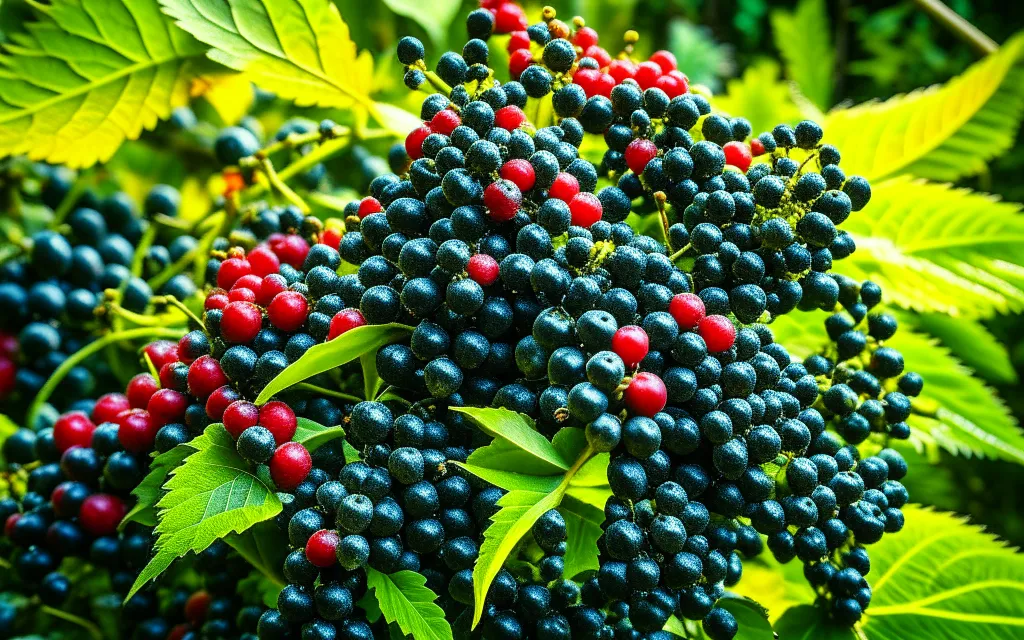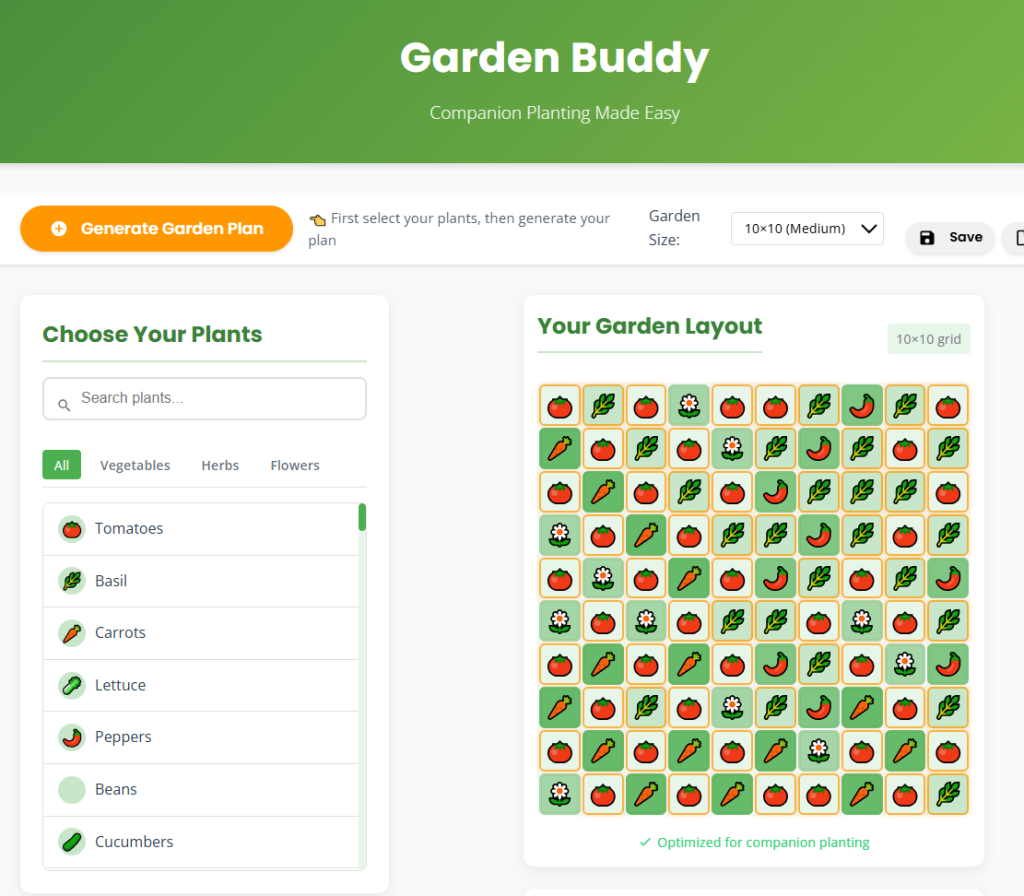
Your Guide to Growing Elderberry and Its Companion Plants
Introduction
Elderberry, oh how I love this plant! It’s not just pretty to look at with its lovely clusters of white flowers and dark berries, but it’s also packed with health benefits. If you’re considering adding elderberry to your garden, you’re in for a treat. Generally, elderberry can thrive in well-drained soil and prefers full sun to partial shade. It’s quite forgiving, making it perfect for those of us who are still learning the ropes of gardening.
Historically speaking, elderberry has been cherished for centuries. Native to North America and Europe, its berries were often used by Indigenous peoples and later by settlers for everything from medicine to pies. The versatility of this plant is just one of the reasons I’m so passionate about rooting for it in my garden!
Now, when it comes to growing elderberry, you might be surprised to know there are several ways to cultivate it. It can be planted vertically, which is a fun way to save space and create a stunning visual impact in your garden. What’s more, you can grow it in different forms—like as a shrub or as a small tree, depending on the cultivar. There are a few varieties to consider, too: the American Elderberry (Sambucus canadensis), European Elderberry (Sambucus nigra), and even the newer hybrids which might suit your growing conditions better.
Benefits of Companion Planting for Elderberry
Now, let’s dive into the world of companion planting! You might be wondering, what are the benefits of companion planting for elderberry? Well, companion planting isn’t just about aesthetics; it’s about maximizing your garden’s health and productivity. When you choose the right plants to grow alongside elderberry, you can enhance growth, deter pests, and improve nutrient uptake. It’s like having a gardening buddy who supports you every step of the way!
Let’s have a closer look at some splendid companions for elderberry.
What are Good Companion Plants for Elderberry?
1. Raspberries
Raspberries are wonderful companions for elderberry. Not only do they love similar growing conditions, but they can also benefit from elderberry’s natural pest-repelling qualities. Plus, a garden filled with vibrant raspberries and elderberries is a feast for the eyes! Raspberries come in red, yellow, and black varieties, with red being the most popular. Just make sure to plant them at least 2-3 feet away from elderberry to give both plants room to grow and breathe.
2. Blackberries
Blackberries are another great match for elderberry. They’ve got a shared preference for rich soil and sunlight, and when grown together, they can create a lush and fruitful hedge that’s a dream for any gardener. Similar to raspberries, blackberries come in several varieties, but I find that the Thornless Blackberry is easier to manage and just as tasty! Again, a spacing of about 2-3 feet between blackberries and elderberry will keep both plants happy.
Plants to Avoid
Interestingly, there aren’t really any plants you need to avoid when growing elderberry. It’s quite a tolerant species! However, I’d still recommend keeping a bit of distance between elderberry and highly aggressive plants. As long as you’re mindful of this, you shouldn’t run into any issues.
Summary
When you grow elderberry alongside raspberries and blackberries, you’ve got a rewarding combo that not only thrives together but enhances each other’s growth. Position raspberries and blackberries approximately 2-3 feet from elderberry to ensure they have plenty of space to flourish. With the thoughtful placement of these plants, your garden can be a fruitful sanctuary.
So grab your garden gloves, and let’s get planting! Trust me, having elderberry surrounded by these berry buddies will create a vibrant and productive patch that you’ll enjoy for years to come. Happy gardening!
Companion Planting Guidelines for Elderberry
Getting the most out of your garden often involves planting companion plants that can benefit each other. Elderberries are a fantastic choice for a garden due to their vibrant growth and attractive flowers. If you’re looking to plant them alongside raspberries, blackberries, or other companions, let me share some spacing recommendations and tips!
General Spacing Guidelines
When it comes to spacing your Raspberries and Blackberries from Elderberry, a good general rule is to maintain a distance of 3 to 4 feet. This space allows for good air circulation and helps prevent the spread of disease.
Guidelines for Tall Companions
If you’re considering taller plants, aim for a spacing range of 5 to 7 feet. Examples include:
Guidelines for Low-Growing Companions
For those low-growing buddies, you can plant them about 1 to 2 feet away from your elderberries. Here are a couple of ideas:
Guidelines for Strongly Aromatic Companions
Aromatic plants can enrich your garden’s ecosystem, so give them 2 to 3 feet of distance from elderberries. Consider these aromatic options:
Guidelines for Nutrient-Heavy Feeders
Plants that are heavy feeders should have a space of 3 to 4 feet from elderberries to avoid competition for nutrients. Some examples include:
Guidelines for Spreading or Vining Companions
For those plants that like to spread or vine out, I recommend a spacing of 4 to 6 feet. This allows them to grow without choking out your elderberry. Think about these companions:
Important Tip
As with all gardening, it’s crucial to adjust these recommendations based on your specific garden conditions and the mature sizes of your chosen companion plants. Factors like sun exposure, soil quality, and moisture can greatly influence plant health and growth.
Summary: Companion Plants for Raspberries and Blackberries
Raspberries
Raspberries can thrive alongside plants like:
Blackberries
Blackberries also have great compatibility with:
When you’re setting up your elderberry patch or integrating raspberries and blackberries, remember to keep their spacing needs in mind. Happy planting, and I can’t wait to hear how your gardens flourish!

Leave a Reply